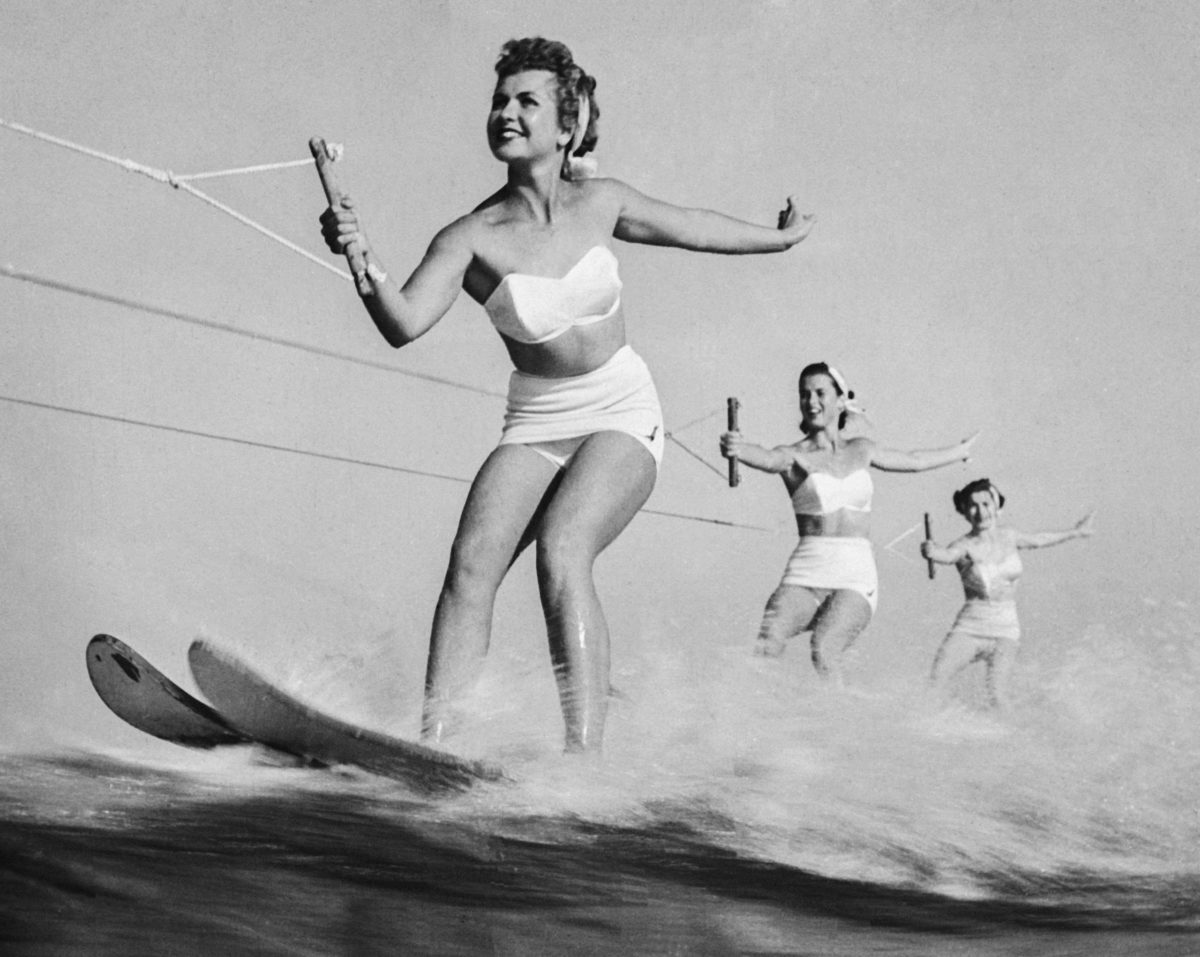No matter their size, children deserve to be loved and taught the truth — including the truth that while being overweight doesn’t take away your human dignity, it is objectively unhealthy.
Western society previously understood that being obese leads to several severe and sometimes fatal health issues. Parents cautioned their children about the dangers of gluttony, and our culture — through entertainment and media — promoted the image of healthy, slim bodies.
That is no longer the case. Unfortunately, it feels like modern society doomed our children to be fat because everyone overreacted about a bunch of girls being anorexic in the early 2000s. Instead of starting a movement that reevaluated how our food is made, we made it socially acceptable to eat yourself into diabetes.

Joan Leslie leads a team of an aquatic parade over the waves of Cypress gardens, in the 30s, in Florida. (Photo by – / AFP) (Photo by -/AFP via Getty Images)
Disney, a leading producer of children’s content that recently planted the LGBTQ+ flag where wholesome family fun used to be, released a clip of a trailer for its new short film, “Reflect,” about a young girl with body dysmorphia. The new film features a plus-size main character, Bianca, a ballerina who “battles her own reflection, overcoming doubt and fear by channeling her inner strength, grace, and power,” according to the synopsis.
“Reflect” upholds the new narrative that being fat and unhealthy is a good thing as long as you love yourself, according to the film’s director, Hillary Bradfield.
“When people watch the short, I hope that they can feel more positively about themselves and how they look and feel okay about the tough parts of their journey. Sometimes you go to the dark place to get to the good place. And that just makes the good place that much more beautiful,” Bradfield said in an interview on Disney+.
Twitter user Meg Potter posted that she wished there had been short movies like “Reflect” when she was a confused teenager and decided to stop practicing ballet. “16-year-old me needed this Disney short before I quit ballet because I didn’t want to be the fat girl in class anymore. I’m glad little ones will have this. 10/10 for Reflect!,” she tweeted.
16 year old me needed this Disney short before I quit ballet because I didn’t want to be the fat girl in class anymore. I’m glad little ones will have this. 10/10 for Reflect! https://t.co/WAqEt3Tdpa
— Meg Potter (@MeganPotter_) October 26, 2022
Potter likely needed a lot of things, including parents paying enough attention to her to realize how much she loved ballet and to be concerned when she quit, but a film that gives a blanket body positivity statement surely wasn’t it. (RELATED: It’s High Time We Make It Illegal For Kids To Be On The Internet)
The short film teaches children about self-acceptance, which is precisely the problem. Children don’t become fat by accident and it is not something they should accept. There is always someone to blame. Unlike adults, children are under the care of their parents. They can’t control the type of food they have access to or the amount of exercise they can perform.
In that same idea, the plus-sized protagonist in Disney’s new short film isn’t the issue. She appears to be a young and impressionable girl from a western country. Bianca has likely eaten processed foods all her life while fighting for her parents’ attention as they remain glued to their devices. (It would surely go a long way to explaining her high BMI and low self-esteem.)
If Disney and people like Bradfield wanted to help children suffering from body dysmorphia, they would stop creating content that glorified obesity and start teaching children how to hunt and grow their own food again.


